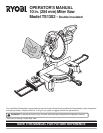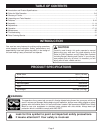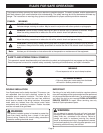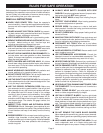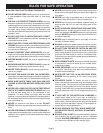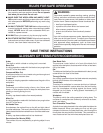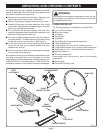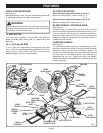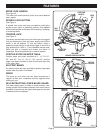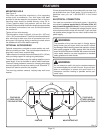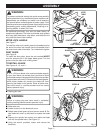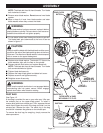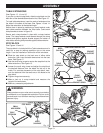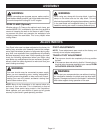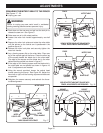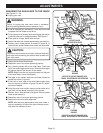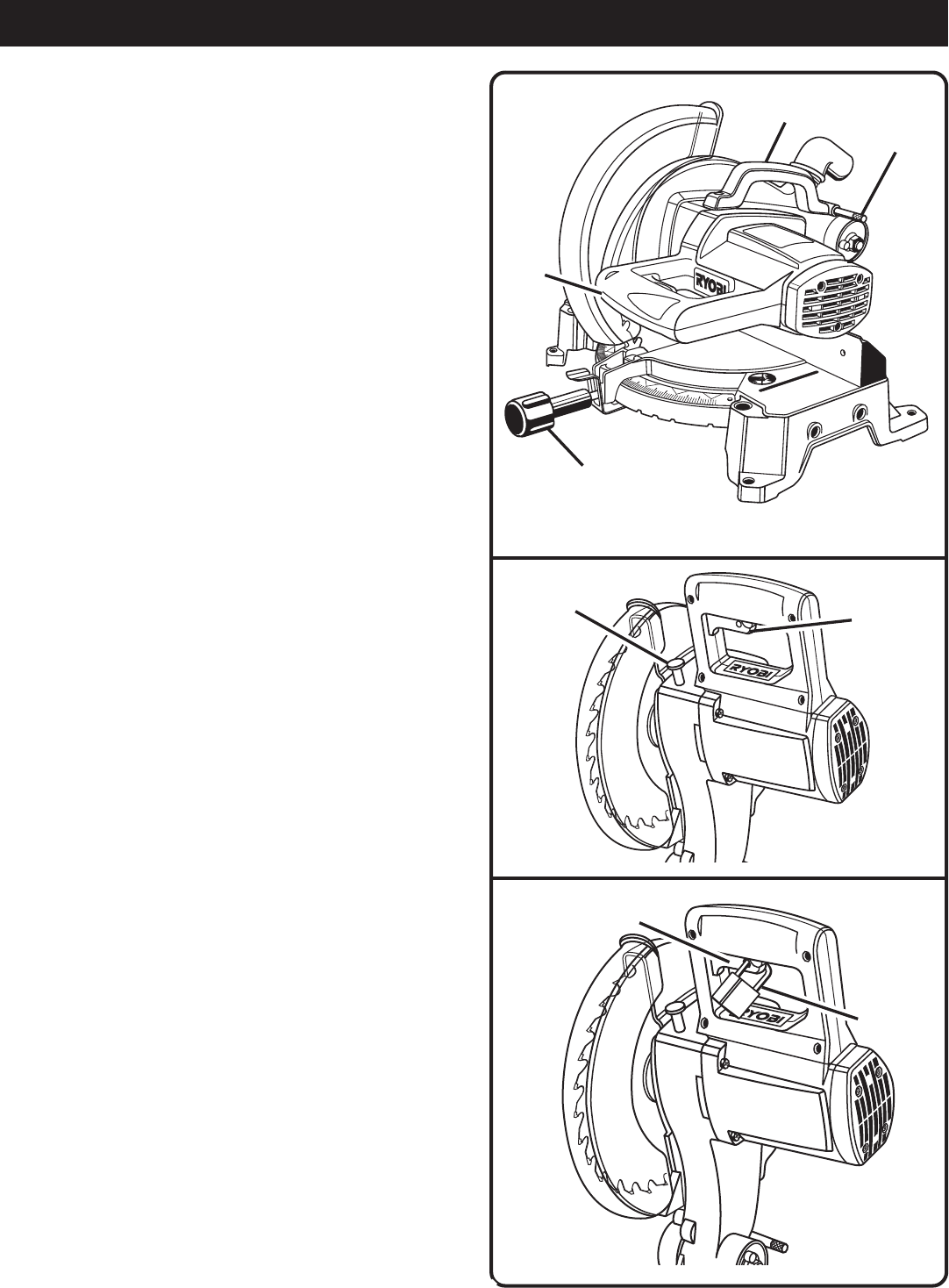
Page 9
45
30
1
5
15
Fig. 3
Fig. 4
CARRYING
HANDLE
SAW ARM
LOCKED IN DOWN POSITION
SAW
ARM
MITER LOCK
HANDLE
PADLOCK
SWITCH
TRIGGER
LOCK
PIN
FEATURES
SWITCH
TRIGGER
SPINDLE LOCK
BUTTON
Fig. 5
MITER LOCK HANDLE
See Figure 3.
The miter lock handle securely locks your saw at desired
miter angles.
SPINDLE LOCK BUTTON
See Figure 4.
A spindle lock button has been provided for locking the
spindle of your saw in a stationary position. Only depress
and hold the spindle lock button while installing, changing,
or removing blade.
TRIGGER LOCK
See Figure 5.
To prevent unauthorized use of your miter saw, we suggest
that you disconnect it from the power supply and lock the
switch in the off position. To lock the switch, install a
padlock through the hole in the switch trigger. A lock with a
long shackle up to 19/64 in. (7 mm) diameter may be used.
When the lock is installed and locked, the switch is
inoperable. Store the padlock key in another location.
POSITIVE STOPS ON MITER TABLE
Positive stops have been provided at 0°, 15°, 22-1/2°,
30° , and 45°. The 15°, 22-1/2°, 30°, and 45° positive
stops have been provided on both the left and right side
of the miter table.
ELECTRIC BRAKE
An electric brake has been provided to quickly stop blade
rotation after the switch is released.
FENCE
The fence on your miter saw has been provided as a
support to hold your workpiece securely against when
making all cuts.
SELF-RETRACTING LOWER BLADE GUARD
The lower blade guard is made of shock-resistant, see-
through plastic that provides protection from each side of
the blade. It retracts over the upper blade guard as the saw
is lowered into the workpiece.



